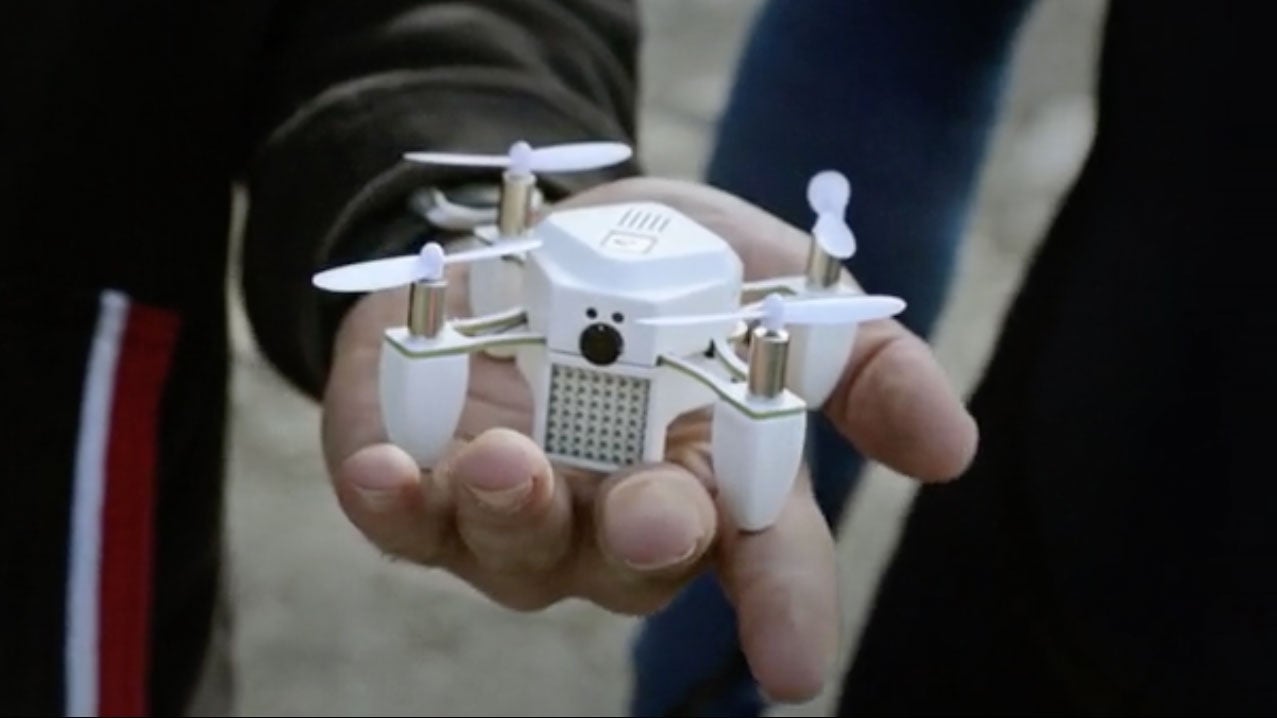After raising $3.6 million, Europe’s most successful Kickstarter project has folded
Kickstarter projects have gained a reputation for overpromising and underdelivering. But one high-profile campaign—considered Europe’s most successful in terms of dollars raised—isn’t delivering at all.


Kickstarter projects have gained a reputation for overpromising and underdelivering. But one high-profile campaign—considered Europe’s most successful in terms of dollars raised—isn’t delivering at all.
After raising £2,335,119 ($3.6 million) from more than 12,000 backers, Torquing Group informed backers today (Nov. 18) that it is shutting down its project to manufacture a tiny drone called Zano that would’ve allowed people to take selfies from the air. The troubled company had been plagued with delays after missing its original ship date of June 2015. Last week, CEO Ivan Reedman resigned from the company, citing “personal health issues and irreconcilable differences.”
“Having explored all options known to us, and after seeking professional advice, we have made the difficult decision to pursue a creditors voluntary liquidation,” the company told backers Nov. 18. “All creditors will be contacted by an insolvency practitioner next week.”
The statement suggests backers might be able to recoup some of their funds, but it’s unclear if that’s indeed the case, or how much of the money raised is unspent. Quartz has reached out to Torquing for more details.
Some of Zano’s backers are furious, calling the project an “absolute fraud,” “scam,” and “failure.” A Change.org petition demanding refunds from the company has garnered more than 1,000 signatures.
“I truthfully believe they ran with the money,” Daniel Greenberg, a New York University student who contributed £189 in November 2014, tells Quartz. “It’s just not OK, both on the part of the company and Kickstarter. Kickstarter is still taking a 5% fee on this $3 million-plus campaign when 12,000 people have lost money.”
Greenberg finds it suspicious that Torquing launched just about a year ago on Nov. 24, 2014, and had posted 48 updates before today. On Oct. 15, the date of its last update, the company gave detailed shipping timelines, saying it would send out 3,000 units on Nov. 13 with another 4,000 on Nov. 20.
Kickstarter has always maintained that project creators are responsible for following through on delivering their products, and the onus for vetting projects and their creators ultimately falls on the backers.
A representative tells Quartz that “there are no guarantees that a project will work out,” and that the company is working to educate backers about risks. “This is why we tell everyone before they back a project that ‘Kickstarter is not a store,'” he adds.
Zano is just one of many examples of funded Kickstarter projects that were abandoned. Such failures erode Kickstarter’s credibility and are likely to discourage jilted backers from supporting future projects.
Up until now, Greenberg described himself as “a huge fan of Kickstarter,” checking the site multiple times a day and having backed eight other projects. But after this experience, he’s “not 100% sure” if he’ll pledge any more money. ”I heard stories of this before…but now it’s happened to me.”